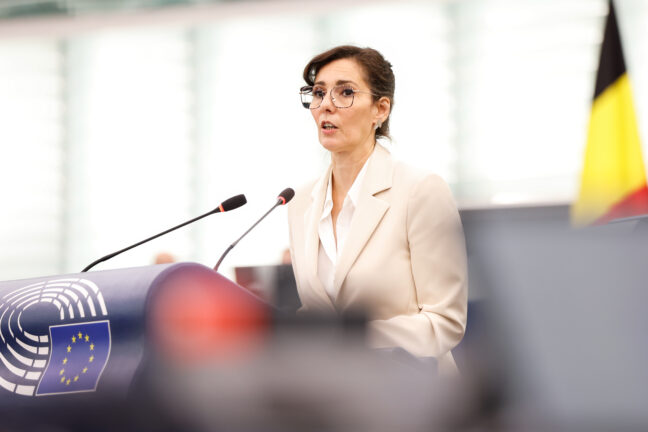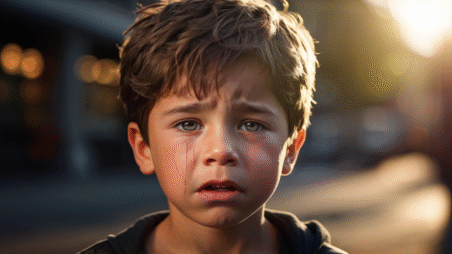In a landmark move to bolster the European Union’s resilience to future crises, Commissioner Hadja Lahbib on Wednesday unveiled two new strategies aimed at strengthening the bloc’s preparedness: a first-ever EU-wide Stockpiling Strategy and a comprehensive Medical Countermeasures Strategy. Speaking at a press conference, Commissioner for Equality, Preparedness and Crisis Management, Hadja Lahbib compared the initiatives to strengthening Europe’s immune system, shifting from reactive crisis management to proactive protection.
“You don’t wait for a car accident to put on your seatbelt,” Lahbib told the press. “The more we prepare, the less we panic.”
The Stockpiling Strategy, a first of its kind at EU level, will build a coordinated system to ensure critical supplies such as food, water, medicines, and emergency equipment are readily available across Member States. The approach emphasises smarter planning, joint procurement, and civil-military cooperation to optimise logistics and reduce redundancy.
Lahbib stressed that Europe can no longer afford fragmented national approaches. “We don’t need a fleet of Canadair planes in every Member State,” she said. “What we do need is a system where assets are deployed quickly, wherever and whenever they are needed.”
You might be interested
To that end, the European Commission is creating an EU Stockpiling Network, bringing together all national stockpiling authorities for the first time to share information, pool resources, and build trust. The initiative builds on lessons from recent emergencies, including COVID-19, devastating wildfires, and floods, with rescEU already proving the benefits of shared assets and pre-positioned resources.
The more we prepare, the less we panic. – Hadja Lahbib, Commissioner for Equality, Preparedness and Crisis Management
Trust, transparency, and strategic warehousing
“Trust is the super glue that holds it all together,” Lahbib said, highlighting the central role of transparency. Through the new network, Member States will gain visibility over shared resources and gaps, enabling faster decision-making in moments of crisis.
The strategy also calls for increased private sector involvement, engaging European companies across the bloc to help maintain and replenish essential supplies. Strategic warehouses, faster transport options, and coordinated logistics chains, supported by civil-military partnerships, form the logistical backbone of this vision.
Medical Countermeasures: from innovation to access
Running parallel to the Stockpiling Strategy is a robust Medical Countermeasures Strategy, designed to improve the EU’s ability to detect, develop, and deliver health solutions swiftly during future health emergencies.
This strategy takes an end-to-end approach, from threat detection and R&D investment to production and equitable access. Lahbib announced the creation of a new EU Wastewater Sentinel System, which will act as an early warning system for emerging infectious diseases, detecting outbreaks even before symptoms appear.
To speed up the development of vaccines and treatments, the Commission is launching a Medical Countermeasures Accelerator, and expanding HERA Invest, the EU’s financing tool for health innovation, to €200 million by 2027. The goal: turn “Made in Europe” into “Ready in Europe.”
“In the next crisis, we want to shorten the wait for medical solutions as much as possible,” Lahbib said, referencing the global scramble for vaccines during the COVID-19 pandemic.
Flexible stockpiling for diverse threats
Recognising that not all health threats are the same, the strategy adopts a risk-specific approach to medical countermeasures stockpiling. A recent example was the 2024 Paris Olympics, where the EU prepositioned emergency kits and detection tools to bolster national preparedness for a large-scale public event.
Crucially, the strategy also invests in the people behind the response, from researchers and manufacturers to caregivers. “They are at the heart of our preparedness,” Lahbib noted. “They need the right skills and expertise to tackle today’s health challenges.”
A new European way of life
The dual strategy rollout builds on the broader EU Preparedness Strategy, announced earlier this year. With climate shocks, hybrid threats, and pandemics no longer distant possibilities but lived experiences, Lahbib called on Member States and citizens to embrace preparedness as a way of life.
“Preparedness must move from the sidelines to the frontline of our defence,” she said. “Today, we are reinforcing Europe’s protective shield, to keep people safe, healthy, and confident for the future.”











